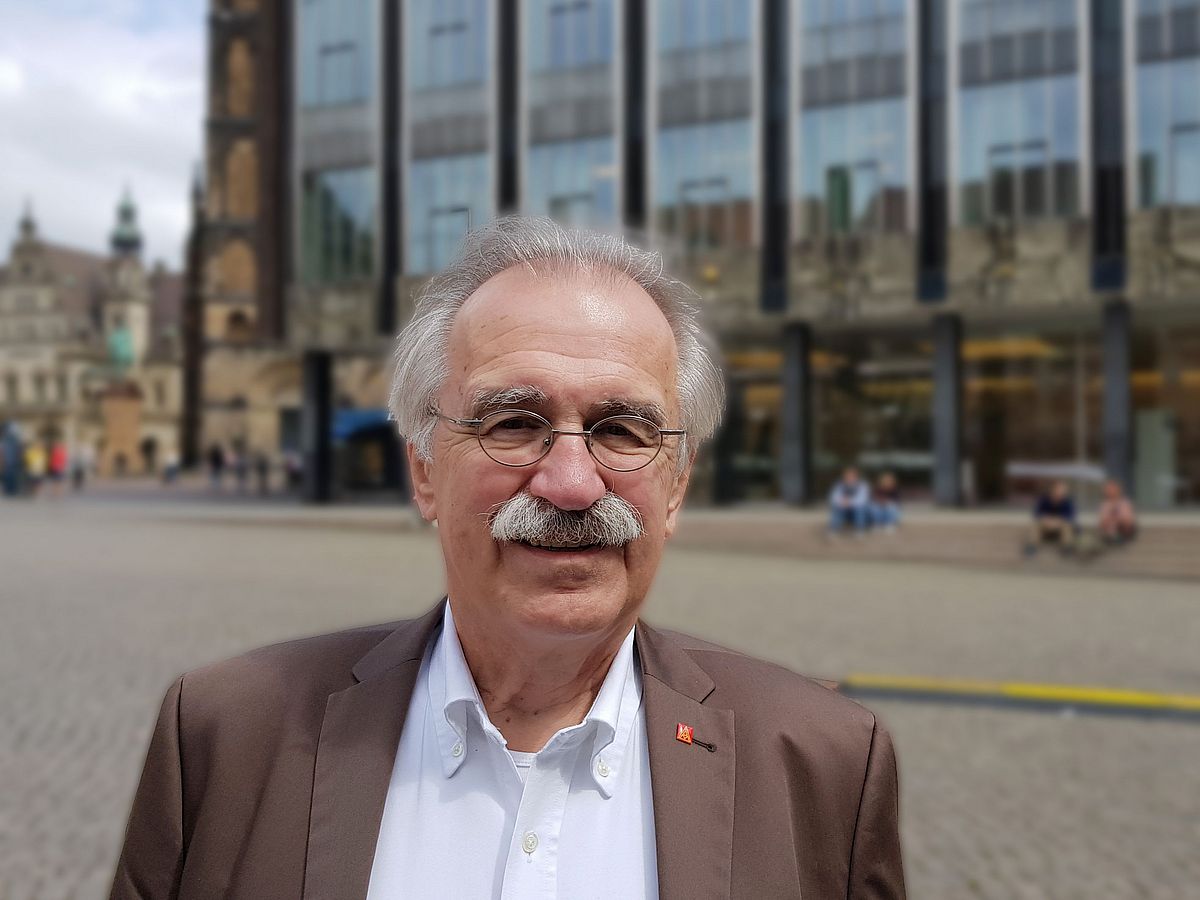An espresso with…Peter Senft

Peter Senft, class of 1949, was one of the first students at the University of Bremen. He completed his law degree in 1979. From 1971 to 1979 he was also a member of the Bremen Parliament. After spending several years in England, he took up various leadership positions in social welfare associations and trade unions. He worked for a total of eight years as a diplomat for the German Federal Foreign Office in South Africa, Egypt and Tunisia.
Why did you study at the newly founded University of Bremen?
After my Abitur [school-leaving exam], I completed a bank apprenticeship and also worked in this profession for a short time. I was the first person in my family to do the Abitur and go to university. I experienced the University of Bremen’s founding phase intensely as a student representative and later as a trade unionist. I had also just been elected to parliament. So for political reasons, it was obvious that I should study here. There were also social reasons: my parents could not afford for me to study in another city.
What had a particular impact on you during your studies?
I have very good memories of the first two semesters of Integrated Social Science Studies (ISES). There were lively political debates about the founding of the university. The interdisciplinary work I learned here helped me a lot for later teamwork. The ISES courses was followed by single-phase legal training, with the big plus of being able to go directly into internships. I did a criminal law internship at a court in the third semester, which was a formative experience.
At ISES, I was influenced above all by Rudolf Hickel, and later by labour law expert Wolfgang Däubler, constitutional law expert Ulrich K. Preuß and international law expert Manfred O. Hinz. Contrary to prevailing public perception, the standards were very high. U.K. Preuß, who represented members of the Red Army Faction as defence counsel in court, said to us: "If you (formally, he was rarely on first-name terms) want to criticise the Federal Republic of Germany, then you have to be better than any conservative lawyer. In Bremen there is only pass or fail, but with me you only get a pass if your performance corresponds to a grade of 'good' at another university."
Especially in those first years, the atmosphere at the University of Bremen was very politicised. Were you also involved in the university alongside your work as an SPD member of parliament?
Very intensively, as far as time allowed. I was a member of the Socialist College Association (SHB) before I started my studies, but then I left in December 1971 and we founded the SHB-SF with a few others. SF stood for Socialist Faction. After the founding of the JUSO university group, I became a member there. At the university I was considered an agent of Mayor Hans Koschnick, which I took as a compliment. This balancing act between critical thinking at university and practical politics has shaped me throughout my later life and helped me keep a critical eye on political developments.
The debates at university were always very strident, but I still found them helpful. Most students at that time were highly educated politically, with a sound theoretical knowledge — perhaps that was different from today. There was cohesion, beyond political boundaries. For example, when new exam regulations were introduced for law students after two years, our still-manageable group of students came together in solidarity and we all supported each other.
“50 Years of Uni Bremen” — What do you associate with that?
I wish that the significance of the university were more highly valued in Bremen politics. After its difficult establishment, when the new university was pushed through against massive conservative resistance. Senator Moritz Thape and Senate Director Curt Kreuser, in particular, stood their ground against these headwinds in Bremen and in Germany. This should not be forgotten after 50 years.
The university was then let down by politics for a long time, that's how I perceived it from the outside. This has gotten better in the last 15 years, as the university has turned more towards Bremen's economy and urban society. But this positive development needs more vigorous political support.







